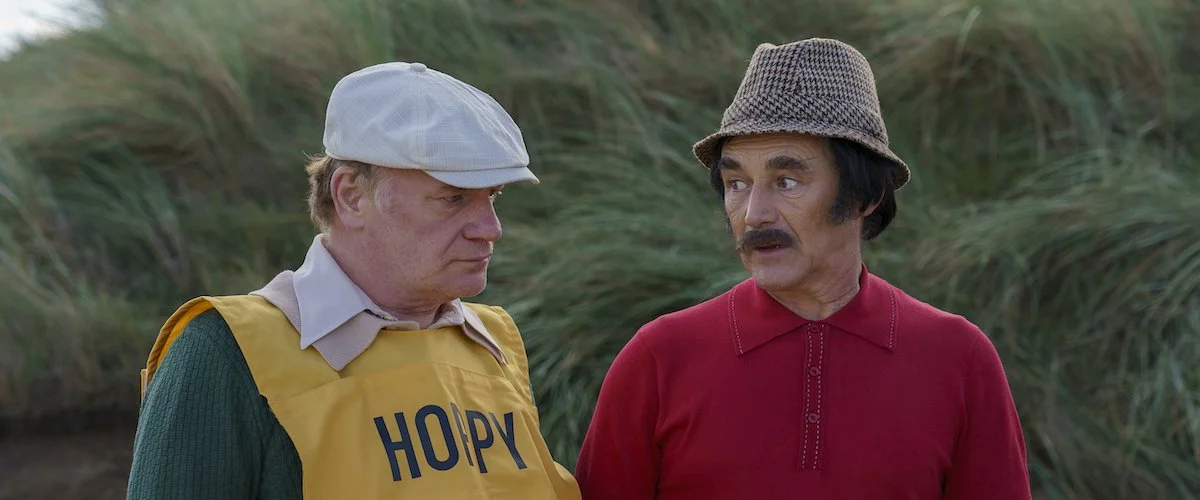Film Review - The Phantom of the Open
Images courtesy of Universal Pictures.
The search for acceptance comes in waves. There’s simply finding a place for yourself in the world, and then there’s finding your place in the world. The acceptance from those he loved, alongside the acceptance he’d found in his achievements were what pushed Maurice Flitcroft, a man who relishes practice and encourages all those around him to shoot for the stars, to find the most in a redundancy after years as a crane driver.
Entering the British Open by blissful naïveté, with no understanding but a passion for the sport, creates an entertaining formula for The Phantom of the Open to present golf from a new perspective. An artful, optimistic point of view from a man embracing his inner child, whose place in the world is rattled by a complete rejection from the establishment and some of those he loved.
The quest for acceptance is a painful one when you’re an oddball. For instance, Maurice’s non-biological son Mike, a child yearning the approval of the same elites who’d shunned him while fatherless. While on the other hand Maurice, a modest, redundant, ageing, family man needs only the love of those around him. Maurice’s literal trip to the stars, a motif presented through blending of Van Gough’s Starry Night with his strolls throughout the film, are some of the best scenes on offer as rejection shakes his childish optimism gained through his time in Scotland where a second family taught him the arts. Alluding to his childhood and the limitless potential he held, a golf ball replaces the moon as the cherry on top of these amazing scenes.
The contrast reflects the generations unusually, as it’s the older hard-working Maurice embracing the world as an oyster while Mike, a ‘60’s baby whose brothers are disco dancers, finds his place beneath the bureaucracy left after redundancies, where there’s only room for only the thinkers, the elites.
Surprisingly funny, while at the same time using nuance as a blunt-force weapon, delivering crushing sadness, The Phantom of the Open subverts a typical focus. The sad thing is not the eviction, or Maurice’s dismal performance at the Open, but rather the crushing of a soul, the inevitable sell-out in the pursuit of riches, and the blame placed on others to compensate for one’s own insecurity.
It’s hard to be a celebrity, or to achieve the heights of whatever profession you choose, and this film doesn’t underestimate the challenge of finding true success. By any traditional measure only Mike is successful. The others are famous losers, but by God they’re living life. Contrast their fun, disco, and friends with Mike’s spreadsheets, shame, and stress. How would you define failure?
The Phantom of the Open is screening in cinemas from July 14th.

